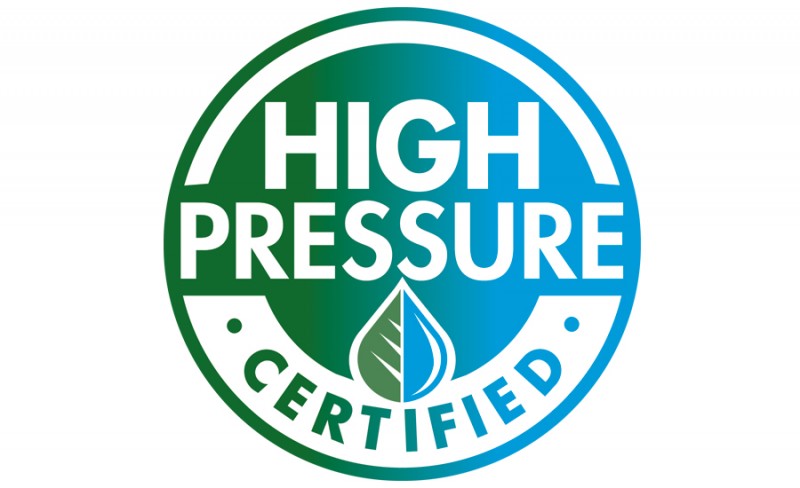
Lisa Wessels, marketing director of HPP for JBT/Avure Technologies, explains that HPP has become a compelling technology for beverages because of its ability to reduce spoilage, increase shelf-life as much as five times, retains vitamin and nutrient efficacy, allows for clean-label production and results in a fresher, more natural taste.
“Consumers are interested in the process that goes into making a beverage,” she says. “HPP is an all-natural process that allows for a clean-label product. In addition, consumers are interested in ‘raw’ products to intensify and enhance the flavors and taste; HPP allows a ‘raw’ drink without chemicals and preservatives.”
Similarly, Ryan Ziegelmann, president of Evolution Fresh for Starbucks Corp., Seattle, believes the popularity of HPP beverages can be credited to an amplified amount of consumers who are demanding fresh-tasting, high-quality natural foods with clean labels.
“We know that beverages using HPP offer better taste and nutrient retention of raw fruits and vegetables versus those using traditional heat pasteurization,” he says.
A seal of safety
Launched in April 2017, the Cold Pressure Council (CPC) oversees the development of best practices in the HPP industry with its new High Pressure Certified Seal. The CPC brings together brand owners, manufacturers, packaging companies, processors and retailers for the growth and development of categories interested in using HPP, Ziegelmann says.
“Similar to the ‘Organic Seal,’ the council verifies that the product has undergone the HPP process,” he explains. “Once verified, the brand owner can display the High Pressure Certified Seal on its products.”
The High Pressure Certified Seal on a product’s packaging means that the product was processed in compliance with guidelines established by the CPC’s founding members to ensure that the equipment was properly used and no food safety shortcuts were taken along the way, JBT/Avure’s Wessels explains.
“One of the key qualifiers is that the brand owner has been independently audited and that they are following the guidelines,” she says. “The guidelines are intended to protect both consumers and the high-pressure technology itself from the effects of a breach in food safety.
“All of the members of the CPC want to make sure that companies aren’t misusing the technology; that there’s proper use of high-pressure processing, so food safety stays intact; that the proper parameters and settings are being used — it all goes back to food safety,” she adds.
Companies within the industry might perceive HPP technology as expensive, but that doesn’t have to be the case, Wessels explains. “With Avure’s high throughput machinery and tolling solutions worldwide, the cost to HPP a product is more economical than ever, especially if you consider the cost of a potential food safety recall [and] less waste, less spoilage and greater distribution,” she says.
Likewise, Evolution Fresh works to educate retailers and consumers on the savviness and benefits of the HPP process. “It is our vision in the CPC that all brand owners use HPP for their products to drive greater awareness and education for the public and industry alike,” Ziegelmann says.
Consumer approved
Experts tout the positive consumer reaction to HPP beverages. “Market research indicates that 93 percent of U.S. households have purchased a clean-label product,” JBT/Avure’s Wessels says. “Sales of beverages billed as simple, clean, sustainable and free of artificial ingredients are increasing while sales of sodas are declining.”
Wessels notes that consumers in the millennial and Generation X age groups are more likely to purchase clean-label products.
A popular trend right now is consumers wanting to drink more water, and watermelon and coconut waters are great examples of beverages using HPP technology, she says.
HPP technology also provides mutual benefits for brand owners. Beyond plant-based waters, other beverage categories, like juices and smoothies, can last as long as 90 days on the shelf, which expands their production and distribution, and increases profits, she adds.
“Brand owners have been eager to adopt the technology because the HPP process brings captivating benefits, including better taste, texture, extended shelf-life and more nutritional value than food processed with traditional high-heat pasteurization,” Wessels says.







